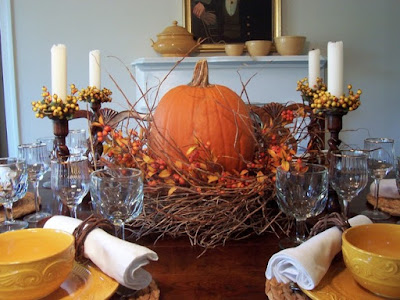 |
| source: google images |
"The fabric of history is often woven of surprising threads: the chance meeting, the extravagant whimsey of fate. No better illustration of this can be found than the string of events surrounding the table in Wilmer McLean's parlor upon which Ulysses S. Grant drew up the terms that brought the Civil War to a close." --Mary A. Benjamin
November is the month of tables--dinner tables, Thanksgiving tables, tables spread with a feast, baking project tables, maybe craft or gift-wrapping tables. Certainly this month of the ongoing
NaNoWriMo challenge, computer tables (or desks) could be included.
Continuing the quest for more word count in honor of this month's
NaNoWriMo, I've been reviewing old files in order to jump start ideas. A story in
American Heritage magazine, dated April 1965, caught my attention. It's a story about how a special little table that would otherwise have been slated for obscurity now holds a place in American history all because of a chance meeting. Mary A. Benjamin wrote about it the issue's article, "Tale of a Table."
The main story revolves around the events of Palm Sunday, April 9, 1865 when General Ulysses S. Grant, commander of the Union army, met General Robert E. Lee, commander of the Confederate forces, to compose and sign the terms of surrender ending the Civil War.
 |
terms of surrender drawn up in McLean parlor
courtesy google images |
The man who owned the house where the historic meeting took place there in Appomattox Court House, Virginia, was Wilmer McLean. Wilmer was no stranger to the war. At the war's onset he lived close to where the first major battle was fought--Bull Run, July 21, 1861. His house at the time was used as a hospital for the injured. He subsequently moved his family to Appomattox, seeking a quiet place "where the sound of battle would never reach them." By a twist of history four years later, it would be his house, his parlor, in which the meeting which ended the war would be held. That in itself is an amazing fact. But there's more.
 |
| McLean table given to Ord |
Following the historic meeting, some wished to acquire mementos of the event and began offering McLean money for some of his furniture. One man, however, did not participate: General E.O.C. Ord. This man had a large family back home and didn't have any money to spare. Imagine his surprise then when McLean offered him one of the small tables as a gift. Why? McLean was described as a pacifist with Southern sympathies; Ord was on the Union side.
Ms. Benjamin digs into the back story by sharing from an Ord family biographical sketch. Written by Ord's granddaughter Lucy Ord Dunlop, a story is told of a young Confederate soldier, desperate with hunger and homesickness, who was said to have bolted for home and ended up stumbling into a Union army camp. "...He was grabbed by a sentinal," the granddaughter wrote, "and taken for questioning to the General. Shivering in rags, hungry and shaking from fatigue, the boy told the General that he did not know anything and did not want to find out anything...he was sick and just wanted to get home...The fierce looking General wanted so badly to get home! They were talking the same language. 'Get him a blanket, there!' he roared. 'Give him some food. See him through our lines and put him on his road home... (Oh) what a war to ruin boys like this! Good night, son, and don't come back.'"
The general? Edward Otho Cresap Ord. The boy? Wilmer McLean's son.
And so Wilmer McLean gave the table to Ord as a symbol of his gratitude. His thanksgiving. At a time when the nation and its families needed to start the long road to healing, one man forgave an offense, another reached out in a spirit of reconciliation and appreciation.
General Ord did insist on paying McLean for the table, giving him all that he had in his wallet, $40. In his lifetime, the table stood in the general's parlor, eventually being passed on by family to the Chicago Historical Society where it can be found today.
The image of a table is often used as a symbol for family. For home and shelter and place. But the table also represents a place of setting aside differences in order to grow closer to one another, to share, connect, forgive, appreciate. And to offer thanksgiving.
The humble table is surely underrated.
Hope the gatherings around your table this Thanksgiving season are blessed in many ways!
________________________













